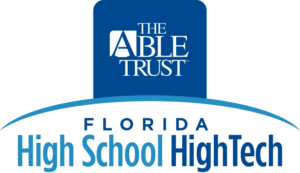Partner Perspectives
Rachel Ludwig
Vice President of Talent Development for Future of Work, Florida Chamber Foundation

What is the mission and purpose of the Future of Work initiative?
The Future of Work Florida initiative aims to create the nation’s #1 workforce by uniting the business community, workforce, and education partners to improve Florida’s talent pipeline. By fostering collaboration between employers, educators, and community leaders, we strive to create a robust talent pipeline that meets the needs of our dynamic economy. Our goal is to empower individuals with the skills and opportunities to thrive in the future of work, ensuring Florida remains competitive and prosperous.
What future-of-work trends are you seeing that are or will be important for students as they think about career opportunities?
Several key future-of-work trends are shaping career opportunities for students. First, the rise of digital transformation means that technological proficiency, particularly in areas such as data analysis, artificial intelligence, and cybersecurity, is increasingly crucial. Next, remote and hybrid work are becoming more prevalent, offering greater flexibility but also requiring strong self-management and adaptability skills. Lastly, there’s a growing emphasis on lifelong learning and continuous upskilling to stay relevant in a rapidly changing job market.
What skills are Florida employers most looking for in today’s jobseekers?
Florida employers are seeking a blend of technical and soft skills in today’s jobseekers. On the technical side, proficiency in digital literacy, data analysis, technology, and specialized skills relevant to high-demand industries such as healthcare, engineering, and IT are highly valued. On the soft skills front, employers are looking for strong communication, problem-solving abilities, adaptability, and teamwork.
Additionally, there is a growing emphasis on critical thinking, creativity, and the ability to manage and lead projects effectively. Emotional intelligence and transferrable customer service skills also remain important as companies strive to enhance their client and employee relationships.
With regard to industries in need of talent, what should Florida students keep in mind as they make decisions about postsecondary education options?
Florida’s economy continues to thrive, providing incredible opportunities for our future talent. Students need to understand which industries offer high-demand careers and career pathways to align their talents and interests with promising career opportunities.
The Florida Chamber Foundation’s “Top 30 in 2030” High-Demand Careers indicate continued growth in healthcare, STEM, construction/trades, business/professional services, education, aviation, advanced manufacturing, and more. Students should explore programs that offer practical, hands-on experience and opportunities for internships or apprenticeships, which can provide a direct pathway into these high-demand careers. Furthermore, they should consider industries that offer strong growth potential and job security, and seek out education options that emphasize the development of both technical skills and soft skills. Understanding the needs of the local job market and aligning their education with these demands will position students for long-term success.
Learn More about
The Able Trust
Youth Programs
High School High Tech (HSHT) provides high school students with all types of disabilities the opportunity to explore jobs or postsecondary education leading to in-demand careers. HSHT links youth to a broad range of academic, career development and experiential resources and experiences that will enable them to meet the demands of the 21st century workforce.
Futures in Focus is intended to support students from grades 9 to 12 (aged 14-22) who have a disability documented by an IEP or 504 Plan.
- Improve participation in education and vocational-related activities leading to increased employment opportunities for middle/high school students with disabilities.
- Connect students to resources that assist them with education and employment pursuits, such as Florida’s Division of Vocational Rehabilitation.
- Increase enrollment in postsecondary education/training.
